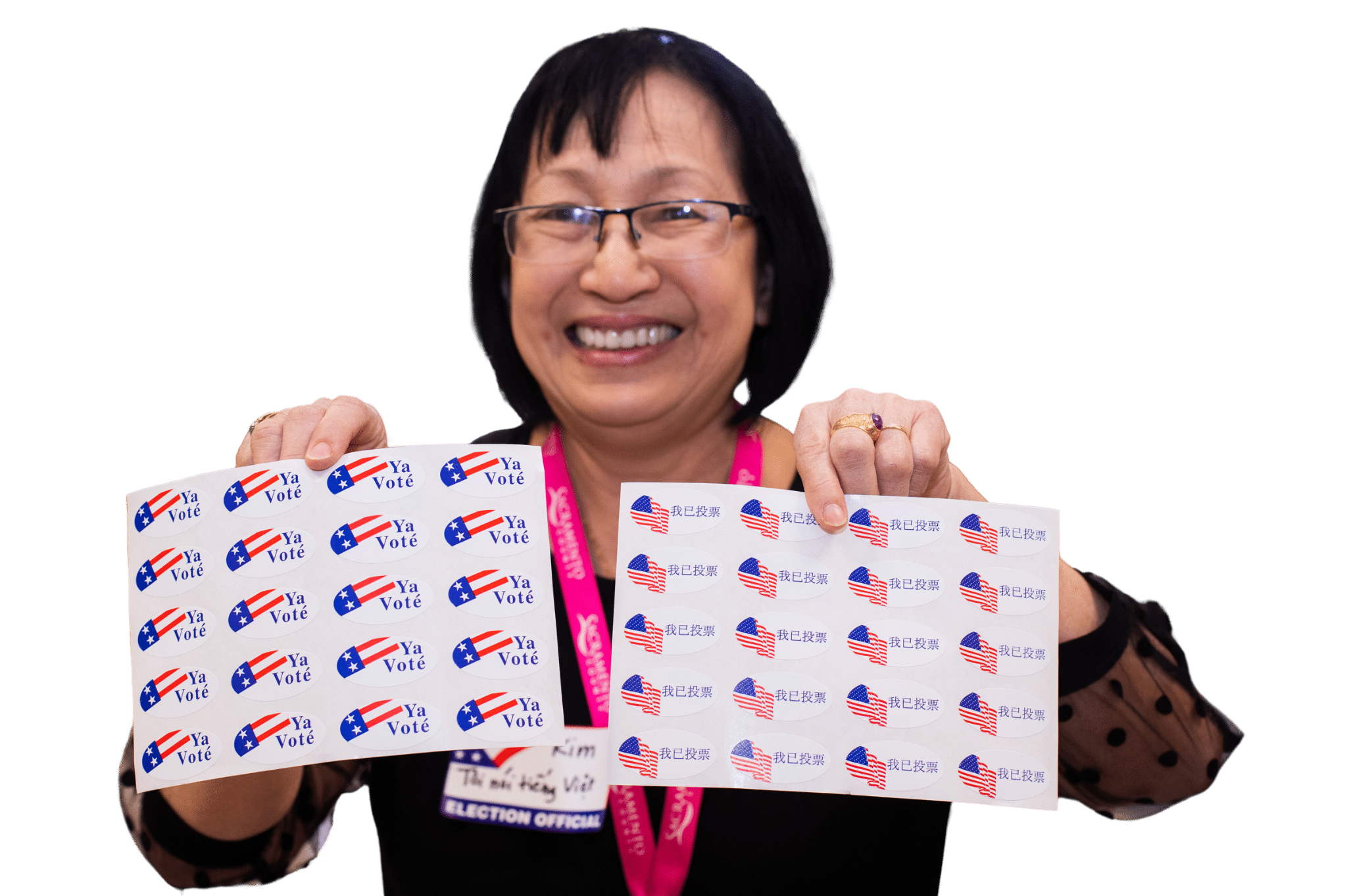Types of Elections
BECOME AN ELECTION EXPERT

What types of elections are there?
There are three basic types — primary, general, and local. In addition, “special elections” can be called which are limited to one specific purpose, e.g., filling a vacancy.
What is a primary election?
There are two types of primary elections. In a Presidential primary election, voters registered with a political party select the candidate who will represent that party on the ballot in the next general election in November. In its statewide primary, California now has a Top Two Open Primary system, which means that all candidates running for state constitutional, U.S. Congressional, and state legislative offices will be listed on a single statewide primary election ballot. Voters can vote for the candidate of their choice for these offices, regardless of how they are registered. The top two candidates, as determined by the voters, will advance to the general election in November.
In a Presidential primary election, if you are registered to vote with a political party, you will be given a ballot for that party. Each political party has the option of allowing No Party Preference voters to vote in their Presidential primary. Find out how to vote for President based on your party affiliation.
When are primary elections held?
The statewide Presidential Primary is held in March of even-numbered years (2024, 2028, 2032, etc.) on the first Tuesday after the first Monday. The statewide Gubernatorial Primary is staggered with the Presidential Primary and held in June of even-numbered years (2026, 2030, 2034, etc.) on the first Tuesday after the first Monday. The California Legislature sets the primary dates.
What is a general election?
The general election is one that is held in the whole state and is not limited to voters in a particular party or a specific locality.
When are general elections held?
The statewide general election is held on the first Tuesday after the first Monday of November in even-numbered years. The general elections for the President and the Governor are staggered like the Primaries and held every four years on the first Tuesday after the first Monday of November.
What is the purpose of a general election?
The purpose of a Presidential general election is to make a final choice among the various candidates who have been nominated by parties or who are running as independent or write-in candidates. In addition, where nonpartisan races have not been decided in the primary, the runoffs are held at the general election. The purpose of the statewide general election for given state and congressional offices is for voters to make a final choice between the top two vote-getters in the statewide primary election. Statewide measures also can be placed on the November ballot.
What is a nonpartisan office?
It is an office for which candidates’ names appear on the ballot without party designation. No party may nominate a candidate for nonpartisan office.
Which offices are nonpartisan?
Local offices such as most city council members, county supervisors, all school boards, and all judgeships, including the statewide office of members of the California Supreme Court. The statewide offices of Superintendent of Public Instruction and Insurance Commissioner are nonpartisan.
Are there nonpartisan primaries?
Yes. Some local nonpartisan primaries such as those for judges are usually held at the same time as the statewide regular primary. A candidate for a nonpartisan office who is on the primary ballot is selected if he or she wins more than 50% of the vote. If not, there is a runoff election in November between the top two candidates.
Do all nonpartisan offices use primaries?
No, some nonpartisan offices, such as most city councils and school boards, do not use primaries. Candidates run as independents and the person with the most votes wins even if it is not a majority.
When are local elections held and how do I learn about them?
There is no set time or method that applies to all city, county, school or special district elections. If you are a registered voter you will receive a Sample Ballot before the election. This provides basic information you need about who is running for what office and whether there are any local ballot measures. Most local offices are nonpartisan and candidates run without party affiliation noted on the ballot. You can always check VOTE411 for more information about your local elections.
Look up Your Ballot with VOTE411
Election Information You Need
Visit Vote411.org to look up your personalized ballot. With VOTE411, you can:
